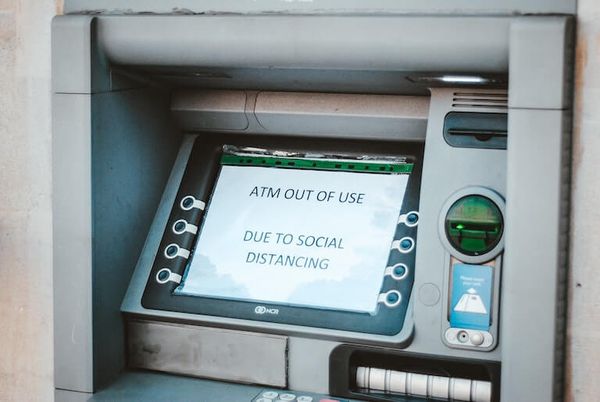There’s a Warren Buffett quote that goes “only when the tide goes out do you discover who’s been swimming naked.”
The quip was intended for exactly the times we find ourselves in.
I’ve been spending the past week or so talking to those who were active operators in prior recessions. At this stage of the downturn, it’s likely that most of us have been affected or know people who are affected by layoffs or paycuts or worse. I think it’s useful, as an employee, to think about the other side of things. What causes companies to act this way? And how do you recognise similar patterns in the future?
The Cash Flow Lens
Cash flow is the lens that I’ve been thinking about the most right now. It happens to be the lens that every business veteran I talk to is obsessing over. Closely related to it is the idea of cash discipline. Regardless of whether you’re an employee or a business owner, I think it will be incredibly useful to apply this lens during this period of economic distress.
We’ve talked about cash flow in the past. I’ve mentioned it in my summary of Ram Charan’s What The CEO Wants You To Know, and I’ve talked about it in the context of chinese businessmen, in Cash Flow is King.
But here’s a quick recap so you know what I’m talking about.
Cash flow, as a term, is used to refer to the streams of cash into and out of the business. It is different from profitability, because a business can be profitable and have bad cash flows. Such businesses are more likely to die during periods like this.
There is a strong temporal element to cash flow. Most businesses don’t pay their bills immediately, nor do they receive payment from customers immediately. This is known as ‘accounts receivable’ and ‘accounts payable’. So you can imagine a scenario in which a perfectly healthy business with great gross margins pays salaries and rent but suddenly faces a cash crunch when customers delay their payments for a month or two. The business is profitable in theory. In practice it’s toast. (For more detail on this, check out Principle 2 in my summary of What The CEO Wants You To Know; Ram Charan has one of the best treatments of cash generation I’ve seen.)
This temporal element means that reasoning about cash flows is really about simulating flows through time. This is not something that comes naturally to most people, especially not during the good times.
Cash discipline is the ability to keep a model of your company’s cash flows in your head at all times. Good businesspeople do this. They trace the dates that money is expected to come in, and trace the dates when money is expected to go out. During times of crisis, they do this even more obsessively than normal: they keep track of cash on a rolling 12-13 week window, on a forward-looking basis. When talking to company management, you get a sense of how cash disciplined they are by watching how they reason about operations. If there’s a constant cash component to their reasoning, then you know that they likely have a very firm handle on finances. But if — even in the good times — they don’t think about cash generation, then it’s likely this recession would catch them by surprise.
As I’ve mentioned earlier, good businesspeople do this. My old boss did this. We were bootstrapped, so we had no choice. But the unsaid implication is that most business owners don’t. After all, people go into business for all sorts of reasons, and we're just coming out of one of the longest bull markets in history:
- Venture-funded startups over the past 10 years have been insulated from the importance of cash discipline.
- Product-driven founders don’t often think like businesspeople — at least, not by default. They are focused on the levers that make their product a success, not necessarily on the business surrounding the product.
- Sales-driven founders might not appreciate the effect delayed payments would have on the rest of the business.
And so on. You can sort of see what Buffett means when he talks about the tide going out. We’re going to see a true test of business leadership in the next couple of months. Which begs the question: if you’re currently an employee, and you’re looking out at your career, how is this lens useful to you?
Applying This Lens
The first, most obvious application of the cash flow lens is to apply it to your personal finances.
Much has been written about this elsewhere, so I’m not going to spend much time here. The inflows to your personal finances are your salary. The outflows is everything else you spend on. Walking through the flows — and the impact to your bank account — in a three month rolling window is a useful exercise to do.
Amy Hoy has a particularly good piece on the basics of spend management during this period. The gist of it is to find ways to delay cash payments, cut down on spending, negotiate credit card terms (say the words ‘COVID19’ to your bank and see if they bite) and use credit facilities provided by the government where possible. The best case scenario is if you already have an emergency fund you can draw on.
Hoy’s piece is a good reminder of everything financial experts say you should do in a recession; I encourage you to read it.
The next application of this lens is to use it to evaluate your company’s leadership. Companies with good cash discipline will thrive in a crisis, because their competitors will suffer. But as you use this lens to analyse your employer, keep in mind that companies are not people — and the cash management strategies they have available to them are very different. Companies don’t usually keep huge amounts of emergency capital in the bank, because they have other sources of capital available to them. They can sell equity, take on debt, and more importantly take on different kinds of debt that you cannot, as an individual. (They may issue notes and bonds, draw down on revolvers, apply for government backed low-interest loans, etc).
Smart companies are already looking for ways to delay payment terms from vendors. From anecdotal evidence, I know this is spreading outwards from the businesses that are most affected to the businesses that aren’t. Friends in SaaS companies tell me that revenue churn spiked for the first time last week, and that they’re handling a larger number of delayed payment requests.
And there are other early signs:
- Gavin Baker of Atreides Management thinks that most people are benchmarking SaaS companies against what happened to SaaS in 2008/2009. He believes this is mistaken, because SaaS wasn’t an established category at the time. Today, CFOs and CIOs are looking at SaaS spend as a distinct line item, and they’re looking to cut. He then tells the story (at 24:37 of this podcast episode) of a friend’s sister who runs a dental practice, who attended a webinar by a trade industry group only a few days ago. The second or third thing they said in the presentation was to cut software spend — that is, to call all of their software vendors, and either ask for an extension of payment terms, or a reduction in monthly spend, and threaten to switch providers if not. As I write this, this advice is likely being passed on in similar settings all over the world. Software companies will be affected by this, albeit as a secondary wave of cut spending from everyone else.
- Patrick McKenzie has another anecdote from earlier today about ‘slow rolling’ invoices, which are beginning to occur and are affecting freelancers.
I saw a freelancer post that a client sent them a "We're not paying invoices due to [the economic environment]" notice. I won't link to it due to my no shaming policy.
— Patrick McKenzie (@patio11) April 7, 2020
The responses from freelancers to this are fairly predictable. I have some slightly different ones:
We’re still at the early innings of this. But the point I’m making is that you can see, through these actions, who has cash discipline and who doesn’t. You can see who is watching cash flows, and who has yet to act. And you can see the effects spreading — from wherever you are in the economy — by watching for these anecdotes.
Operating a business in this environment is a matter of taking advantage of all those who don’t have good cash discipline. A business person that I respect told me that her playbook is roughly as follows:
- Have vendor conversations in a way that allows you to push accounts payable, without alienating the good vendors.
- Look for competitors with bad cash discipline, and look to take over their vendor relationships and/or client contracts.
- Look for ways to prevent layoffs, in order to maintain capabilities against less disciplined competitors.
Layoffs are a little complicated to reason about. On the one hand, layoffs reduce the business's capabilities, which in turn reduces its ability to execute against sloppy competitors. But on the other, layoffs at this stage of the recession can be a good sign. It might mean that someone in leadership is watching the cash flow situation carefully. This is a stronger signal if you work in a business that isn’t immediately affected by the pandemic response — for instance, if you do software, or sell market intelligence, or act as a supplier to other businesses. The fact that Omni Group laid off a bunch of people last month is terrible news, but likely also a positive signal that someone there knows what’s up; most other software businesses I know seem to be acting like the world hasn’t changed yet.
(Caveat: I’m not sure what’s going on internally, so my read with Omni may be completely off.)
The best case scenario for many companies in a tough spot is really doing one round of layoffs early in the recession, and then executing with reduced burn for the rest of it. You can only do that if company leadership has a good understanding of cash flows.
And so the question is: is my company’s leadership good with cash discipline? This is the most useful question to ask right now. A friend’s company that is F&B adjacent fired all sales staff two weeks ago, switched the founders to sales, and doubled down on product development. They shared cash flow projections across the entire company immediately after the layoffs. I was impressed by how quickly (and transparently!) they acted on something so painful; my hope is that they survive the next 18 months. One thing's for sure: they have good cash discipline.
The worse case scenario is the leadership team that cuts expenses bit by bit, repeatedly, over the course of the recession, losing capabilities and morale throughout. One layoff is bad, but two is a surefire sign that your bosses have horrible cash discipline. If you find yourself under such management, it’s a good idea to prepare yourself. You’ll likely have to find another job.
Originally published , last updated .
This article is part of the Capital topic cluster, which belongs to the Business Expertise Triad. Read more from this topic here→





